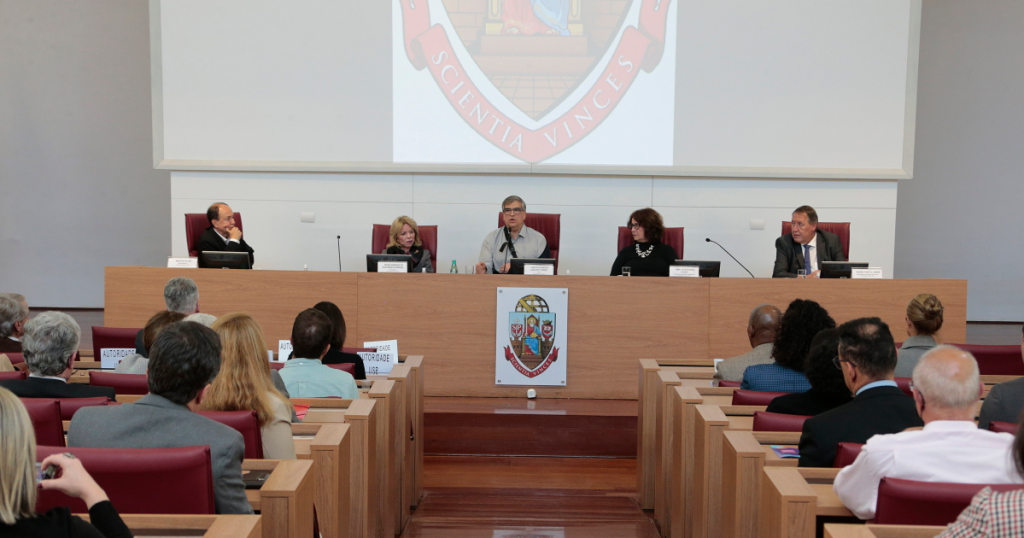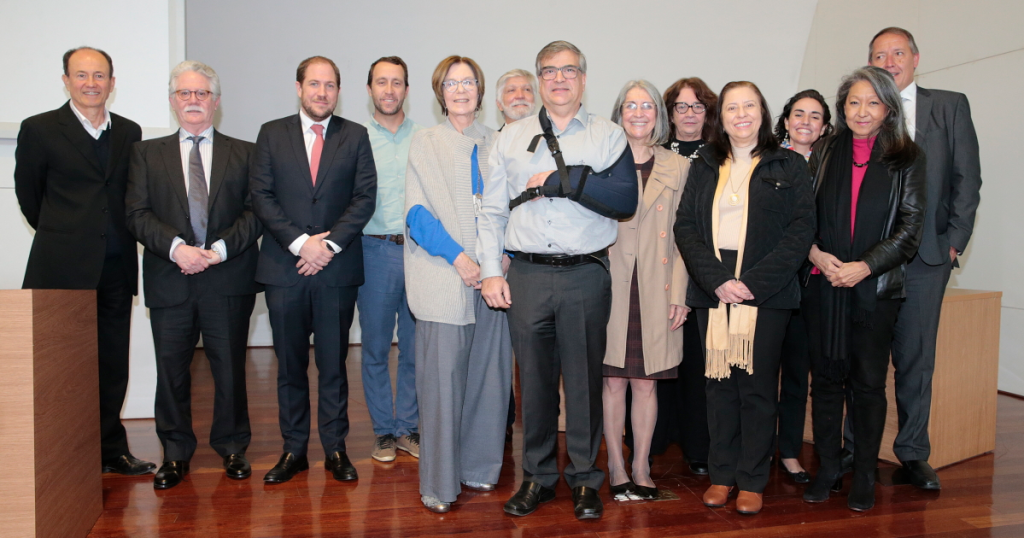USP implements scholarship program for students with socio-economic needs
The USP Diversa initiative aims to raise funds from companies that will commit to financially supporting students throughout their entire study period, and also from individuals, that may choose between one-time or recurrent donation options

Source: Marcos Santos/USP Imagens
USP launched on August 31st a donation program for both legal and natural persons interested in funding scholarships for undergraduate students in socioeconomic vulnerability. The project has been named USP Diversa, translatable as Diverse USP.
The University seeks to encourage prospective companies to commit to a previously defined amount of scholarships. Individuals interested in giving their support can contribute recurrently or as a one-time donation, and will determine their participation period anticipatedly.
Institutions such as Itaú, Deutsche Bank, Santander, and Dow Chemical Company have adhered to the program. The USP Patrimonial Fund will also offer ten scholarships. In total, the first stage of the program will offer over 270 scholarships, which have a monthly monetary value of R$800 reais (eight-hundred Brazilian reais). The total investment is estimated to be R$10 million (ten million Brazilian reais).
“It is essential that this initiative inspires a greater sense of kinship and belonging in students, and that they feel as an integral part of the University. The interaction with social actors external to the University, who will take part in the program, should inspire the students to form a network of personal relationships and boost their future professional lives. Promoting diversity isn’t a decision restricted to the University, but a choice made by society as a whole. For example, companies today have been seeking more diverse teams, following ESG practices that pledge greater commitments to environmental, social, and governance causes,” emphasized USP’s president, Carlos Gilberto Carlotti Junior.
Companies will be able to define the scholarship concession criteria, taking into consideration the communities prioritized by the University: black and indigenous people; members of the LGBTQIA+ community; people with disability; expatriates and refugees; guardians or parents with toddlers (between one and three years of age). Other minority segments may be benefitted at the discretion of the program’s Steering Committee. The same rules apply to regular person sponsorships, which can choose to direct their resources to a certain group, given that they respect the social and economical vulnerability criteria.
The amount of scholarships will be defined annually, according to the resources available, and a call for applications will be announced to the public. The registration and selection of students will be managed by the Pro-rectory of Inclusion and Belonging.
“Inclusion and diversity both integrate and add on to the academic excellence that is essential to USP in all knowledge and professional areas. Today we have 50% of enrolled students at the University coming from public schools and, out of these, 29,7% with a family income between one and three minimum wages and 22,7% identify as black or indigenous people” affirmed the Pro-rector of Inclusion and Belonging, Ana Lúcia Duarte Lanna.
The pro-rector emphasized that USP already maintains a financial support program directed towards student permanence, subsidized by the University’s own budget, that offers scholarships and financial aid to students with dire socioeconomic necessities. This program supports, annually, more than 14 thousand students, of which 77% are the first generation of their families to enroll at a public university. Compared to the total number of students at USP, this percentage of first-generation students represents 42%. “That demonstrates the importance of these permanence programs, and tells us that we were able to reach out to groups that come from challenging, adverse situations to face the great hurdles and novelties that represent university life”, said professor Lanna.
Performance
The students that are granted a USP Diversa scholarship have to attain certain performance goals, such as: being enrolled in a number of subjects per semester, attend a minimum number of classes, and be approved in a stipulated number of credits annually.
The program’s results will be monitored and analyzed to verify its impact on the dropout rates and the academic performance of the group of students that are granted the scholarship.
“The promotion of inclusivity actions is one of our Presidency’s administrative goals. With a greater number of students from public schools and black and indigenous students enrolling at our University, we must provide them with the necessary conditions to remain in their chosen courses and to take part in all the academic activities that contribute to their professional development. The USP Diversa program seeks to fill this gap, with the possibility of legal and natural people making their contributions,” points out the President.
The launch of the project was part of the USP Pensa Brasil activities and it was decided at the University Council Room, inside the Presidency building, in São Paulo, and had the participation of University representatives, companies representatives, as well as faculty members, students, and staff members.

Source: Marcos Santos/USP Imagens
Admissions and affirmative action
USP has adopted affirmative action policies for black, indigenous and public school students in its undergraduate admission process since 2016, when the Unified Selection System (Sisu) was implemented alongside Fuvest as an additional enrollment option. In 2018, the University Council approved a policy that established a quota for students who come from public schools.
The quotas were made available according to a scale: in 2018, 37% of the openings of each institute were directed to affirmative actions; in 2019, the openings amounted to 40%; in 2020, a total of 45% of openings of each institute were offered through affirmative action; and, from 2021 onwards, 50% of openings have been directed to affirmative action enrollment.
These affirmative action quotas also include 37,5% of openings directed to black and indigenous people, which is equivalent to the proportion of these groups in the Brazilian state of São Paulo, information declared by the Brazilian Institute of Statistics and Geography (IBGE).
In 2022, USP registered that 50,2% of all enrolled undergraduate students came from public highschools and, among them, 36% identified as black and indigenous people. Of the 10.901 openings filled this year, which represent 97,8% of the entire amount, 5.468 are public school students and, out of them, 1.969 are black and indigenous people.
Currently, out of the 59.267 undergraduate students, 20.231 students have enrolled through openings destined to affirmative actions policies, which equals to 34%.
This article was written in Portuguese by Adriana Cruz for USP Press and translated to English by Filipe Albessu Narciso and reviewed by Kiara Neves, interns at USP International Office.
